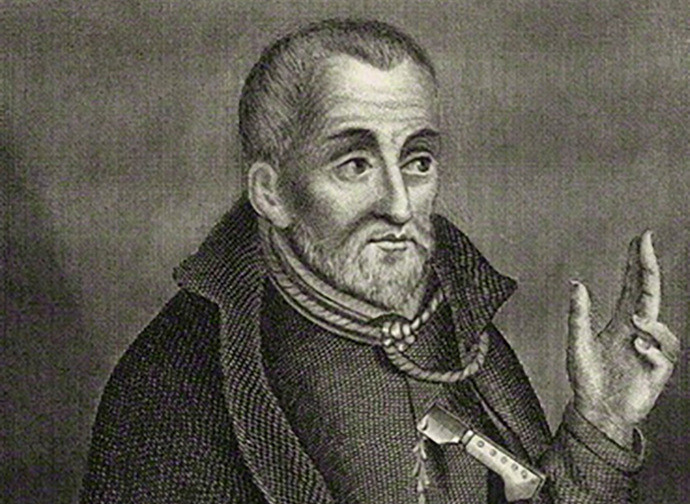Saint Edmund Campion
Saint Edmund Campion (1540-1581) also known as the Pope’s Champion was one of the forty martyrs of England and Wales to be canonised by saint Paul VI in 1970.

Saint Edmund Campion (1540-1581) also known as the Pope’s Champion was one of the forty martyrs of England and Wales to be canonised by saint Paul VI in 1970. During the reigns of Henry VIII and Elizabeth I, the Catholic Church was displaced by the Church of England and its clergy and laity were persecuted and killed. He ministered to Catholics in England during persecution exhibiting religious zeal and great courage.
Edmund Campion, the son of a Catholic bookseller, was raised as a Catholic even if officially the family converted to Anglicanism. He was a brilliant academic and earned a scholarship to Saint John’s College, Oxford, where he was selected to make a formal speech of welcome before Queen Elizabeth I who was so highly impressed that he won her lasting regard.
Campion was ordained a deacon in the Anglican Church but increasingly came to believe that only the Catholic Church was the true continuation of the Christian faith. He left Oxford for a period of reflection in Dublin. After Pope Pius V excommunicated Elizabeth, life for Catholics became much harder. He moved to France where he became a Catholic and was ordained subdeacon at Douai seminary. From there he walked barefoot to Rome to join the Jesuit Order and as a novice experienced a vision of the Blessed Virgin Mary foretelling his martyrdom in England. He was finally ordained a priest in 1578.
In 1580 Campion joined the first mission sent by the Jesuits to minister to the Catholics of England. He moved from house to house across the country encouraging Catholics to remain loyal to their faith. At one such house he was betrayed and captured by priest hunters.
When he refused under severe torture to recant his religious convictions, his captors invented charges that he had conspired to overthrow the queen. He was convicted of high treason and hung, drawn and quartered on 1 December 1581 at Tyburn, London, England. (Patricia Gooding-Williams)

